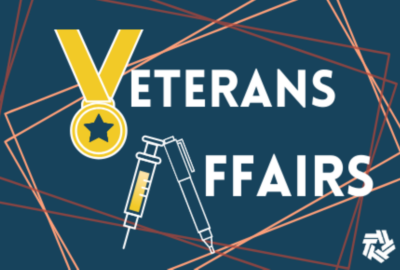- The Office of Personnel Management is trying, once again, to fix the technology running retirement services. The big bang approach is out and the agile approach is in to modernize OPM's retirement services systems. Guy Cavallo, OPM's chief information officer, said previous attempts tried to do too much at once. "What I'm focused on is let's get new retirees into a digital form so that we're not trying to fix the entire past at the same time," Cavallo said. One of the first steps is the recent launch of a chatbot to answer many of the most common questions OPM receives from retirees.
- The General Services Administration is making more improvements to the SAM.gov platform. Starting May 26, GSA will introduce a new registration workflow for both new and current users. The changes include questions that will help users pick the best option for how they want to use the portal. GSA said it also has simplified the language, created a way to compare registration options side-by-side and added on-page help. The goal is to help vendors choose the best registration option more confidently. GSA launched a test environment at alpha.sam.gov for users to test out the changes and provide feedback.
- Congress is urging the Department of Veterans Affairs to make further reforms to recruitment for health care workers. The Veterans Health Administration is on track to reach its fiscal 2023 goals to increase staffing. But House lawmakers on the Veterans Affairs Committee said they are concerned about how long it takes VHA to hire and onboard employees. Despite some improvements for time-to-hire, the recruitment process can still take nine months, in some cases, from start to finish. Chief Human Capital Officer Tracey Therit said she is looking to remove or streamline unnecessary steps in the process wherever possible.
- The General Services Administration is making a new tool available to help agencies electrify their fleets. The Electric Vehicle Suitability Assessment tool (EVSA), uses vehicle driving patterns to analyze fleet telematics data. The data can then be used to help agencies identify federal fleet vehicles that can be replaced by an electric vehicle. Agencies can use the EVSA to find options for electrifying their cars and trucks based on range and cost of ownership analysis. The Biden administration is working to transition the federal fleet to zero-emission vehicles by 2035.
- Thousands of federal employees at the Justice Department are calling on Congress to oppose a ban on abortion coverage in the Federal Employees Health Benefits program (FEHB). In nearly every year since the 1980s, Congress has included an amendment in its appropriations package that blocks FEHB participants from receiving health care coverage for abortion-related medical services, except in cases of rape or incest. Employee advocates at DoJ said the ban limits the rights of federal employees seeking this type of health care, and puts the government behind the private sector.
- Defense Department Policy Chief Colin Kahl will leave his post this summer to go back to teaching at Stanford University. Kahl has served as Undersecretary of Defense for Policy for the past two years, after a contentious nomination battle, much of it to do with tweets. Kahl later apologized for the tone of some of his social media posts. No Republican Senators voted to confirm him. Kahl will stay on at the Pentagon until after this July's NATO Summit in Lithuania.
- The Senate Homeland Security and Governmental Affairs Committee advanced 13 bipartisan bills yesterday. One bill will focus on strengthening agency management, which will improve the oversight of agency software asset management practices. Another bill will provide administration and funding for the Federal Executive Boards to improve workforce development and government efficiency. A third bill to come out of committee would create an artificial intelligence training program for federal supervisors and management officials. The bills now go to the full Senate for a vote.
- A union representing workers at several bases in Alaska successfully got Army management to back down on two issues where the Federal Labor Relations Authority (FLRA) sided with the union. The American Federation of Government Employees accused the Army of implementing a unilateral contract after contract negotiations stalled. A 2019 White House executive order allowed Army management to limit the time union officials spent working on union activities. That rule was overturned by a new executive order in 2021, but the Army did not change its policy. The Army now has agreed to comply with the FLRA decision on both issues.
Copyright
© 2024 Federal News Network. All rights reserved. This website is not intended for users located within the European Economic Area.

